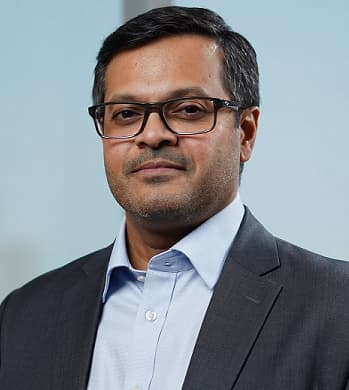Form is Temporary, Class is Permanent

In cricket, we see many big players being criticized when they are out of form in a few games. Then there are some players who play well in a T-20 format but are unable to perform in the 50-overs or the test-match format.
But history has proven that it is just a matter of a few games before these quality players regain their form and reach even greater heights. There is a famous phrase often used for such players, ‘Form is temporary, but Class is permanent’. On the other hand, some players may have stellar performances, who may even achieve world records, but they cannot find a place in the team for the long term because they cannot perform on a sustained basis. As fans, we tend to idolize such cricketers in the short term, but the names we finally remember are those that show class and quality over the long-term.
This short-sighted approach is common not only in cricket, but also in case of mutual funds. For instance, most investors seem to have fallen into the ‘recommendation trap’ and want to know the best-performing fund as they strongly believe that this is the secret to wealth creation! But in the search for ‘instant gratification’, they ignore funds with a strong long term track record.
When we buy any product that we expect to own for a long time like a TV, car or washing machine, we check its durability and resilience over time besides its performance, but tend to overlook these factors when we buy equity funds. In fact, a product which works well in shorter time frames need not necessarily work well over longer periods.
Hence what one should seek is optimum returns and not maximum returns. In other words, choosing a fund which gives higher returns for a commensurately lower risk (volatility) as measured by risk adjusted returns.
Creating wealth by investing in funds basis short-term performance is only possible if one is able to perfectly time entry and exits to encash the high short term returns before the market cycle changes. The reality, however, is that timing the market is very difficult and there is a very high probability of an error which can significantly impact portfolio returns and the ability to meet financial goals. Hence it has been rightly said that ‘time in’ the market is more important than ‘timing’ the market.
A goal-oriented investing approach, based on a sound evaluation of a fund over a sufficiently long period, and that too not purely basis past performance, but after also considering qualitative filters like People, Philosophy and Processes (3Ps) followed by the fund house may help deliver the desired outcomes.
While individually, it may be difficult for investors to monitor these attributes, seasoned investment platforms like the Dreams into Action (DiA) platform of FinEdge may be able to help investors follow the above approach. DiA focuses on enabling the investment expert and the investor to have better conversations (customisation), setting correct expectations (understanding investing belief), finding investment purpose (goal setting), joint decision-making (building conviction) and then investing in the right products (Mutual Funds) by following a disciplined strategy (Systematic Investing) to meet their financial goals.
The platform is both high touch and high tech where technology acts as an enabler for the investment manager, who in turn acts as an enabler for the investor. This combination, which helps to combine the science and psychology of investing, is a key differentiator for DiA which focusses on the journey and not just the destination, thus helping long term investing.
Such a transitioning of investors from returns-centric investing to goal-oriented investing is likely to result in vastly improved investing behaviour, more resilience through the ups and downs of markets, and better chances of goal achievement.
Conclusion
I would take a leaf from the initial cricket example and recommend that investors must avoid choosing funds looking only at their current ‘form’ (performance) as form could be temporary but must go a step further and look for funds with ‘class’ (strong long-term risk adjusted returns) which is more permanent. Class is a combination of 5Ps – People, Philosophy, Processes, besides Performance and Portfolio. Remember, the last 2Ps are merely outcomes if the first 3Ps are right.
Disclaimer
The information contained in this article is not a complete representation of every material fact and is for informational purposes only. Statements/ opinions/recommendations in this communication which contain words or phrases such as “will”, “expect”, “could”, “believe” and similar expressions or variations of such expressions are “forward – looking statements”. Actual results may differ materially from those suggested by the forward-looking statements due to risk or uncertainties associated with our expectations with respect to, but not limited to, exposure to market risk, general economic and political conditions in India and other countries globally, which have an impact on the service and / or investments. There may have been changes in matters which affect the security subsequent to the date of this article. The AMC, Trustee, their associates, officers or employees or holding companies do not assure or guarantee any return of principle or assurance of income on investments in these schemes. Please read the Scheme Information Document carefully in its entirety prior to making an investment decision and visit our website - Franklin Templeton India for further details.
Your Investing Experts
Relevant Articles
9 Personal Finance Mistakes to Avoid
You must have heard the famous phrase: "Knowing is half the battle". It signifies the importance of being informed. The other half is the application of knowledge. Unknowingly, people do make mistakes and learn from them. However, learning from personal finance mistakes can come at a cost and derail or push you back in your financial planning journey. Hence, it is best to be aware of these money mistakes and avoid them so your financial planning journey can be smooth. In this article, we will discuss some common financial mistakes to avoid.
Steps to Construct a Great Investment Portfolio – A Guide for Smart Investors
Living in today’s information age has its pros and cons. You have your broker, family members, friends, colleagues, and others giving you friendly investment tips. You also have TV channels, newspapers, magazines, social media and other internet channels bombarding you with investment recommendations/tips.
Investment Strategies: Growth and Value Investing
The stock markets go through various business/economic cycles of ups and downs from time to time. During these phases, various stocks do well based on certain criteria. For example, growth/momentum stocks usually do well during bull markets, and value stocks do well during bear markets. The investment strategy that you follow influences your returns. In this article, we will understand the various investment strategies and which one you should follow to maximise your portfolio returns.



